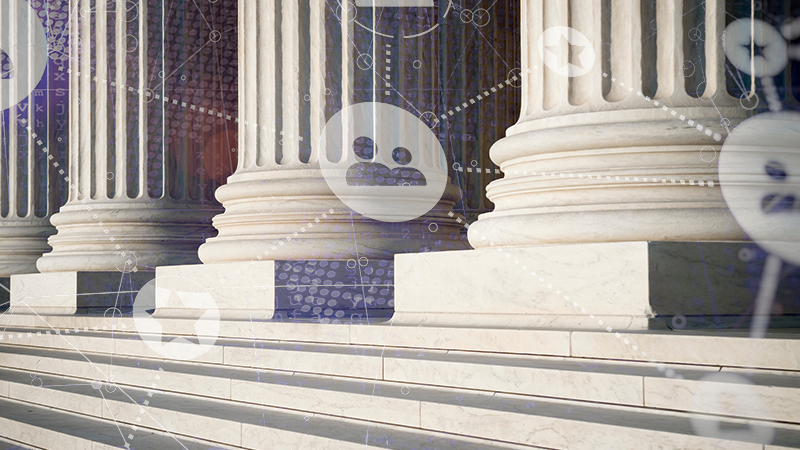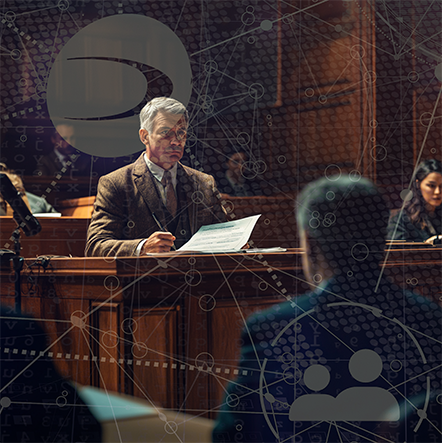Introduction
In personal injury cases, including a neuropsychology expert witness can significantly affect the outcome of litigation. Neuropsychologists provide crucial insights into the cognitive and emotional impacts of injuries, often serving as the key to demonstrating the severity of impairments such as traumatic brain injury (TBI), post-traumatic stress disorder (PTSD), and other psychological traumas. This blog will explore how a neuropsychology expert witness strengthens personal injury cases, their role in the courtroom, and the types of cognitive deficits they assess.
What is a Neuropsychologist?
A neuropsychologist is a licensed psychologist specializing in understanding the relationship between brain function and behavior. They use cognitive assessments to evaluate cognitive functions such as memory, attention, language, and executive functioning. Neuropsychologists often work with individuals who have suffered neurological injuries or conditions like TBIs, strokes, or neurodegenerative diseases such as Alzheimer’s.
Distinctions Between Neuropsychology Expert Witnesses and Psychology Expert Witnesses
In legal contexts, the distinction between a neuropsychology expert witness and a psychology expert witness is crucial. Both play significant roles, but their expertise and focus differ.
Neuropsychology Expert Witness
A neuropsychology expert witness focuses on the relationship between brain function and behavior. They are often engaged in cases involving:
- Traumatic Brain Injuries (TBI)
- Strokes
- Neurodegenerative diseases (e.g., Alzheimer’s, Parkinson’s)
- Brain tumors
- Epilepsy
These experts use cognitive testing to evaluate deficits in areas such as memory, attention, executive function, and problem-solving abilities. Their assessments help determine how these impairments affect behavior and decision-making, particularly in legal cases like personal injury and medical malpractice.
Psychology Expert Witness
A psychology expert witness, on the other hand, typically focuses on mental health, emotional functioning, and behavioral issues. They assess conditions like:
- Depression
- Anxiety disorders
- Personality disorders
- Schizophrenia
- PTSD
Psychology experts are frequently involved in cases related to emotional distress, competency evaluations, and parental fitness assessments in family law disputes.
Key Differences Between Neuropsychologists and Psychologists
- Scope of Expertise: Neuropsychologists focus on cognitive impairments resulting from neurological conditions, while psychologists address emotional and psychological well-being.
- Types of Assessments: Neuropsychologists conduct cognitive assessments using standardized tests, while psychologists use therapeutic evaluations to assess emotional health.
- Legal Cases: Neuropsychologists typically testify in brain injury and neurological disorder cases, while psychologists handle cases involving emotional and mental health issues.
Qualifications of a Neuropsychologist
To practice neuropsychology, individuals must meet rigorous educational and licensure requirements. These include:
- Doctoral Degree: A neuropsychologist must have a Ph.D. or Psy.D. in psychology, specializing in neuropsychology or clinical psychology.
- Postdoctoral Training: They must complete 1-2 years of postdoctoral training focusing on neuropsychological assessment and treatment.
- Licensure: Neuropsychologists are licensed to practice in their state and must pass the Examination for Professional Practice in Psychology (EPPP).
- Board Certification: Some neuropsychologists pursue board certification through the American Board of Clinical Neuropsychology (ABCN), enhancing their credibility.
What Makes a Good Neuropsychologist Expert Witness?
When selecting a neuropsychology expert witness for a personal injury case, consider several key qualities:
- Clinical Expertise: The expert should have extensive experience evaluating patients with brain injuries or neurological conditions.
- Clear Communication: A neuropsychologist must explain complex cognitive impairments in layman’s terms, making their testimony accessible to jurors.
- Objective Assessments: Neuropsychologists provide unbiased evaluations based on scientific testing.
- Courtroom Experience: A good expert witness is familiar with courtroom procedures and can withstand cross-examination.
Role of Neuropsychology Expert Witnesses in Personal Injury Cases
Conducting Comprehensive Evaluations
Neuropsychologists play a critical role in personal injury cases by conducting thorough evaluations to determine the extent of the plaintiff’s cognitive impairments. These evaluations typically include:
- Clinical Interviews: Interviews with the plaintiff help gather medical history and details about the injury.
- Standardized Testing: The neuropsychologist administers tests to assess cognitive functions like memory, attention, and processing speed.
- Behavioral Observations: Neuropsychologists observe the plaintiff’s problem-solving abilities and behavior during testing.
These assessments form the foundation of expert testimony in court, helping judges and jurors understand the severity of the plaintiff’s cognitive impairments and how they affect daily functioning.
Establishing Causation Between Injury and Cognitive Deficits
In many personal injury cases, the neuropsychologist is responsible for establishing causation—linking the plaintiff’s cognitive impairments to the incident in question. For example, a neuropsychologist might testify that a traumatic brain injury from a car accident has led to long-term memory loss, difficulty concentrating, or other cognitive deficits. This testimony is critical in securing compensation.
Rebutting Defense Claims
The defense may argue that the plaintiff’s impairments are exaggerated or unrelated to the incident. Neuropsychology expert witnesses provide objective, scientific assessments that counter these claims. They use standardized testing to confirm the presence of cognitive deficits, providing evidence that supports the plaintiff’s case.
Neuropsychological Methodologies in Personal Injury Litigation
Neuropsychological Testing
Neuropsychologists use standardized cognitive tests to evaluate brain function. Common tests include:
- Wechsler Adult Intelligence Scale (WAIS): Assesses intelligence and cognitive abilities.
- Trail Making Test: Measures attention and cognitive flexibility.
- California Verbal Learning Test (CVLT): Evaluates memory and learning capacity.
These tests provide measurable results that help attorneys substantiate claims about the extent of the plaintiff’s cognitive impairments.
Independent Medical Examinations (IMEs)
Neuropsychologists also perform Independent Medical Examinations (IMEs), which are objective evaluations requested by one party (usually the defense). These exams determine whether the plaintiff’s cognitive impairments are consistent with the injury and whether other factors, such as pre-existing conditions, might be contributing.
Impact of Neuropsychology Expert Testimony on Personal Injury Cases
Strengthening Legal Arguments
Neuropsychology expert witnesses provide valuable testimony that links the plaintiff’s injury to specific cognitive deficits. Their assessments strengthen the plaintiff’s legal argument by demonstrating the real-world impact of the injury, including difficulties in work performance, daily functioning, and overall quality of life.
Quantifying Damages
Quantifying cognitive impairments is one of the most challenging aspects of personal injury litigation. Neuropsychologists help by providing detailed reports that estimate future medical expenses, rehabilitation needs, and loss of income due to cognitive deficits.
Offering Prognostic Insights
Neuropsychologists also offer prognostic insights, helping the court understand whether the plaintiff’s cognitive impairments are likely to improve over time or are permanent. This information is vital for determining the appropriate compensation for future care.
Types of Cognitive Deficits Neuropsychologists Evaluate
1. Memory Deficits
Neuropsychologists evaluate both short-term and long-term memory. Tests like the Wechsler Memory Scale assess how brain injuries affect an individual’s ability to retain and recall information, which is crucial for cases involving TBIs or neurodegenerative diseases.
2. Attention and Concentration Deficits
These are common in TBIs and strokes. Neuropsychologists assess the ability to sustain focus, divide attention between tasks, and filter out distractions. Tests like the Continuous Performance Test (CPT) help measure these skills.
3. Executive Functioning Deficits
This includes issues with planning, organizing, and solving problems. Neuropsychologists evaluate executive function, often impaired after brain injuries, by using tests like the Wisconsin Card Sorting Test.
4. Language and Communication Deficits
Neuropsychologists assess verbal fluency, comprehension, and naming skills using tests like the Boston Naming Test. These deficits are common in individuals with brain injuries and can significantly impact daily life.
5. Visual-Spatial Deficits
Tests like the Rey-Osterrieth Complex Figure Test assess visual perception and spatial awareness, helping diagnose conditions that impair these abilities.
6. Processing Speed Deficits
Neuropsychologists assess processing speed using tests like the Trail Making Test to determine how quickly an individual can complete tasks. Slowed processing speed is common after brain injuries.
7. Emotional and Behavioral Deficits
Cognitive impairments often intersect with emotional and behavioral changes. Neuropsychologists assess how conditions like depression or anxiety impact overall cognitive performance.
Real-World Case Studies Involving Neuropsychology Expert Witnesses
1. Cullen v. Pinholster (2011)
In this capital case, the defense did not present neuropsychological evidence regarding the defendant’s traumatic brain injury, which could have influenced the sentencing. The absence of neuropsychological testimony likely affected the outcome.
2. State v. McDonald (2006)
A neuropsychologist’s testimony helped establish a diminished capacity defense, showing how the defendant’s cognitive impairments influenced their understanding of their actions during the crime.
3. John v. Im (2002)
This case reinforced the need for neuropsychologists in personal injury cases. Although the court ruled that neuropsychologists could not diagnose TBIs, their evaluations remain crucial in determining the impact of injuries.
4. Baker v. State (201 0)
In a personal injury case involving a car accident, a neuropsychologist’s evaluation of the plaintiff’s cognitive deficits helped secure a favorable settlement by clearly demonstrating the long-term impacts of the TBI.
Conclusion
Neuropsychology expert witnesses play an indispensable role in personal injury cases by providing critical insights into cognitive impairments and neurological injuries. Their detailed assessments, clear testimony, and ability to establish causation and quantify damages help ensure that plaintiffs receive fair compensation. By offering scientific evidence and objective evaluations, neuropsychologists contribute significantly to the success of personal injury litigation.
Read more:
- American Family Physician | Neuropsychological Evaluations in Adults

Are you an expert?
Join a thriving community of over 15,000 experts at Expertinfo.com, where your knowledge is valued and your expertise makes a difference. With 40 years of experience in connecting experts like you with attorneys who need your specialized skills, we’re dedicated to facilitating successful collaborations. Don’t miss the opportunity to impact critical legal cases and expand your professional network. Reach out today and become part of our extensive database of leading experts. Your expertise isn’t just needed—it’s essential. Connect with us now and start making a difference!







